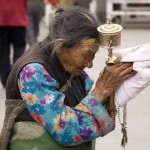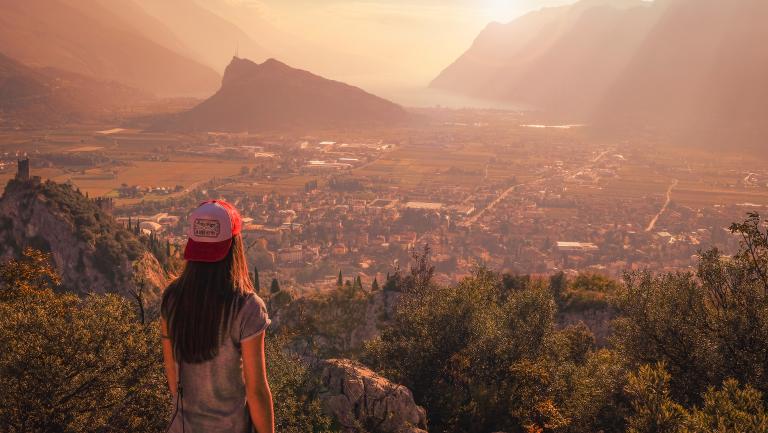
I had a fascinating conversation recently with a friend who became acutely ill a few weeks ago and very nearly died.
She remembers spending time between worlds, talking to the spirits of specific acquaintances on the other side.
What surprised her more, as she began to recover, was realizing the people around her had been traumatized by her brush with death. She hadn’t felt the fear and uncertainty her family and friends had experienced. She wasn’t conscious for it.
In some ways, she has ended up consoling them for the terrible ordeal they went through as she lay in a hospital bed.
Now, before I say what I’m going to say, let me be clear:
- I’m delighted my friend is recovering. I was among the dozens who prayed for her.
- I worry like everyone else when friends are seriously ill, and I feel a loss if they die.
- I believe grief is a normal, healthy part of the human experience.
But consider this:
How different our lives would be if death were not considered a tragedy!
WE KNOW BETTER
What if we could recognize consciously that death is merely a transition? It is energy changing form, like water turning to steam, a natural physical occurrence.
As the Christian world approaches Easter this week, could we not remember its message? Physical death is not the end of life.
Physical death only happens to the body, and we are so much more than our bodies. Our lives continue in a different way.
 How much money could we save in the massive American health care and drug industry if we were not constantly trying to forestall death?
How much money could we save in the massive American health care and drug industry if we were not constantly trying to forestall death?
How much more peaceful could we be if we didn’t believe our country had to be the biggest, baddest fighter on the planet because someone might try to come kill us?
How much more easily could we navigate our personal lives without a deep fear that someone we love might die, or without the devastation sometimes brought about by death?
Death is a loss, yes. We lose the physical presence of someone we love.
It can be heart-breaking. And I don’t know whether sudden or lingering deaths are more difficult.
But do they have to be a tragedy? It seems in the United States that even the average life expectancy – 81 for women and 76 for men – seems a bit too young to die, unless there has been prolonged suffering.
In a nation that keeps claiming to be Christian, why do we not celebrate – and even envy — the transition of someone we love into a higher awareness of the divine?
Could deaths ever be celebrated the way births are? Both are passages into a new form of being.
DEATH AS A CHOICE

Personally, I believe people die when they are ready to leave the planet.
I don’t mean a conscious, logical decision to die.
But at a soul level, we choose to leave the body when we have finished what we came into this human experience to do or learn. Or if not finished, at least we’ve done all we can this time around.
I suspect the choice for death from the soul’s perspective is like walking through a door. You’re inside, then you go outside, and maybe later you’ll come back inside for another life. Not a big deal.
It’s as if you went on vacation with a group of people you enjoy, and one or two of them were called home early. Disappointing, but from a soul perspective, you’ll be leaving right behind them.
Would you create a $1.6-trillion industry to keep them on vacation with you as long as possible? Would you mass an army to prevent their going home?
At the physical level, our manner of dying may be one last opportunity to learn from the human experience.
For those left behind, it’s an opportunity to understand more about love in all its forms, which has to include loss. We wouldn’t know the joys of love if we didn’t also experience loss, rejection or betrayal, the painful sides of love.
In terms of your own growth, a loved one’s death might be their final gift to you.
THEY’RE STILL HERE
I realize this perspective might not help at all if you are grieving a death.
Losing the physical presence of someone you love can be life-altering, even if entering and leaving a lifetime is routine in the soul’s view.
But from everything I read, the so-called dead are right here with us, albeit unseen, still aware of what’s going on in our lives and available for communication.
I know people – don’t you? – who talk to their dead loved ones all the time, even though they would never consider themselves mediums.
But even if you don’t believe the dead are still available to us . . .
Even if you don’t believe our souls choose when to leave human form . . .
Even if you don’t believe we consciously come into the human experience or will ever come back again . . .
Can you not remember that 2,000 years ago, something happened to convince a small band of people that physical death is not the end of our existence?
Whatever their actual experience – and we will never be sure what it was — they were so galvanized by this realization that they spent the rest of their lives spreading the word. They were so effective that we still know their names today, and believe – most of us – we believe their message that death is merely a transition.
What if we loosened our grip – just a little – on staying in this human form until the bitter end? What if we were willing to let others walk through that door a little more freely?
How different our time on earth would be!
PS – I realize I am writing from a myopic American perspective. If you live or have lived in another country, is there the same emphasis on staying alive at any cost? In places where death from disease and starvation are more common, is letting go any less painful?
















